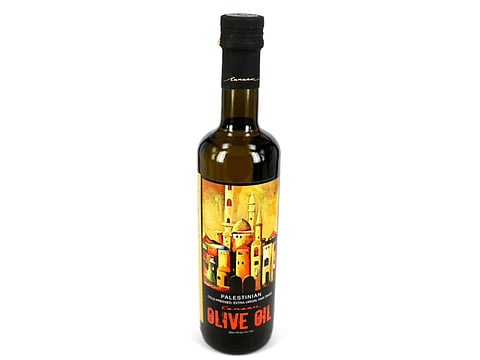Gaza support call this Onam
As Jerusalem olive oil is launched in Kerala and the UAE, the politically aware Malayali is being asked to support Palestine this harvest season

When Malayalis go on a shopping spree this Onam, one organisation is hoping they support Palestine’s farmers by purchasing regionally grown olive oil. Elements Fair Organic, founder-promoter of the Fair Trade Alliance Kerala (FTAK), a Kozhikode-based collective, has partnered with Canaan Fair Trade, which works with 1,700 farmers across the West Bank, to import olive oil to Kerala. Canaan Fair Trade is the founder of the Palestine Fair Trade Association.
Joining the cause
By Onam, which falls today, 6,000 bottles of olive oil, branded Jerusalem, are to be marketed through a network of 1,500 stores, retailing at Rs850 (Dh51.50) for half a litre. It will soon be available at Jones The Grocer’s Abu Dhabi branches, and with speciality food distributors in Dubai.
Nasser Abufarha, Founder and Director, Canaan Fair Trade, tells GN Focus:“This is our maiden entry into the Indian market and is a huge deal for us.
“All fair trade products are sold with a story woven into them, but the purchase decisions behind them also tell their own story. In this case it is one of solidarity with Gaza.”
The oil going to Kerala is mainly sourced from the West Bank, but its purchase is being billed as an act of solidarity with the entire Palestinian people.
Tomy Mathew, Managing Director, Elements, and promoter of FTAK, says the Malayali harvest festival is the best time to launch such a product.
He tells GN Focus, “Onam is our celebration of an egalitarian myth — a collective memory of primitive communism. It is a joint yearning of the Malayali people for a world where justice prevails.
“The relevance of these narratives to the yearnings of the Palestians — for land, self-rule and justice — are all too obvious. So, this Onam we’re offering a creative provocation to the politically aware Keralite to put his money where his mouth is.”
Money counts
The Palestine question has intrigued Malayalis for more than half a century. “Palestinian poets such as Mahmoud Darwish are household names in Kerala,” says Mathew.
“No month passes in Kerala without a solidarity event linked to the Palestinian cause. The entire state literally took to the streets throughout the recent escalation of violence in Gaza. They can now vote with their shopping bags for Palestine.”
“All we are asking for is hundreds and thousands — it’s all about good food, solidarity and table fellowship,” says Mathew.
With Palestinian farmers reeling from the current crisis, Abufarha believes it makes sense to support such disadvantaged products from various conflict zones. “It’s not just olive oil, it’s Palestine we are placing on shop shelves worldwide. We are trying to ensure that farms remain economically viable and receive tangible support, enabling farmers to keep their lands, and provide them with fair trade market access,” says Abufarha.
He adds that farmers are currently being denied water for their farms, hindering crop yield. The current Israeli campaign has reportedly damaged more than two million olive trees in Gaza, thus affecting the livelihood of the region’s farmers. Some of these olive trees are more than 2,000 years old.
Kerala loves olive oil
Political rhetoric aside, Kerala’s affair with olive oil has grown in the past decade. Dubai-based Malayali chef, Anil Kumar, says coconut oil has been replaced by olive oil, which is now routinely brushed onto dosas and used in coconut chutneys.
“The popularity of olive oil, which was earlier used only to massage babies, is due to increasing health awareness among expat Malayalis. They have been greatly exposed to the product, especially in the Gulf, and have been taking it back to Kerala.
“Olive oil is heavily endorsed by chefs, doctors and celebrities in the state. This has created a market for olive oil, which is evident from its presence in supermarkets in Kerala’s cities,” he says.



